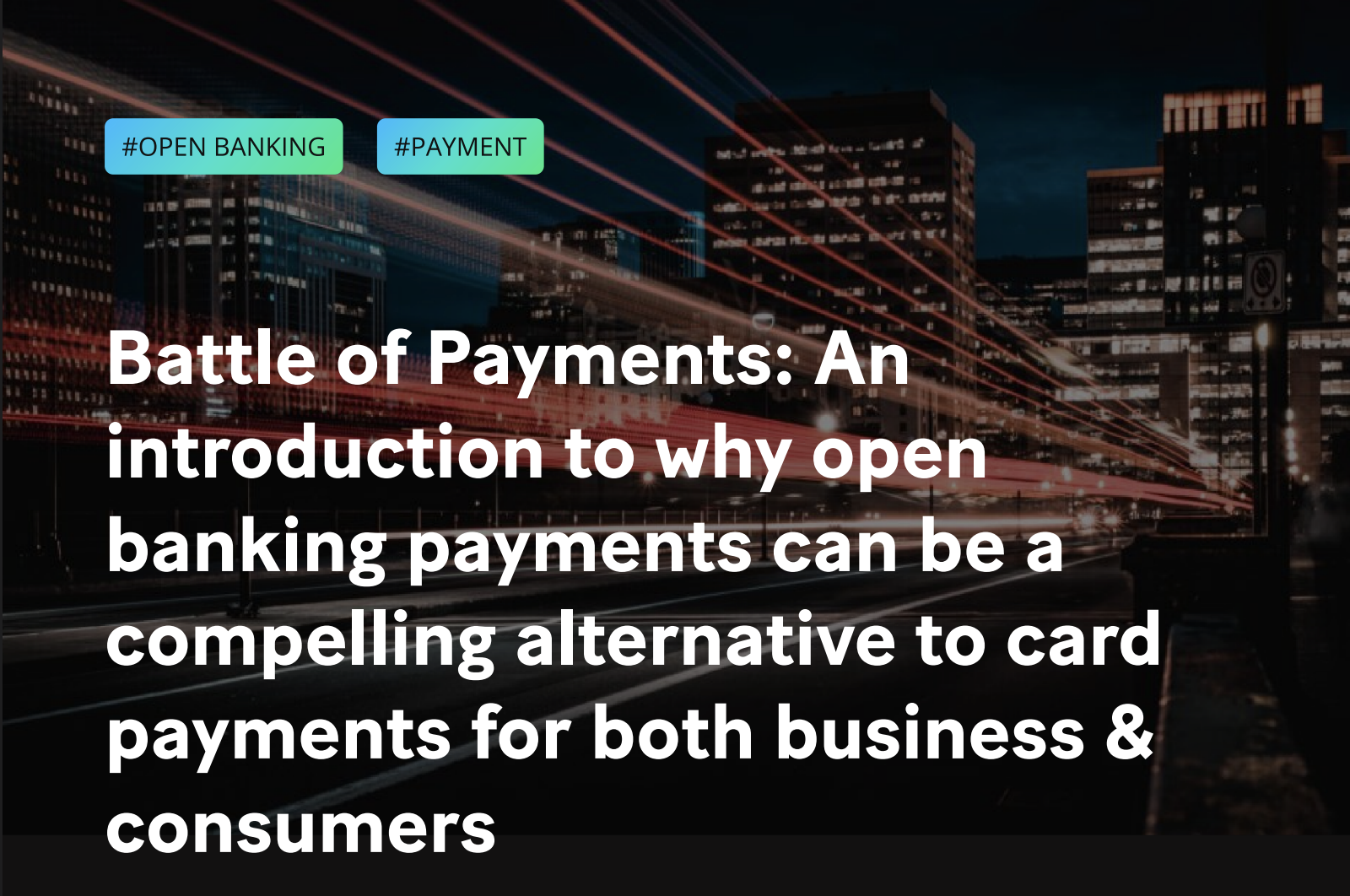DIGITAL SOLUTIONS
Sopra Banking Software: Battle of Payments
An introduction to why open banking payments can be a compelling alternative to card payments for both business and consumers.
January 17, 2024

Have you ever wondered about the intermediaries that are involved to facilitate the transfer of money from a consumer bank account to the merchant bank account? Do you know who pays for the online and in store payments that are being made on a regular basis with debit and credit cards? And do you know why open banking payments might be considered a suitable alternative to card payments? This article aims to give you the answers together with some interesting insights.
Except from the monthly subscription fees, consumers pay to their bank for having a debit or credit card they are not being charged for every individual card transaction. However, that does not mean it is free. Merchants are being charged card processing fees for every online or in store payment deposited in their bank accounts: When for example a consumer buys something for 100 euro with their debit or credit card the merchant will receive 100 euro minus the card processing fees.
Although the card processing fees of an individual transaction might not seem very much interesting, it is the sum of many small transactions together that makes cards and payments a highly valuable global industry of about 778 billion euro in 2022 with an expected growth to 1166 billion euro in 2026 at a CAGR of 10.6%1. In Europe, there was a 17.3% growth in card transactions in 2021, reaching a total of 56.3 billion. This growth coincided with a 14.4% increase in the total transaction value, which totalled to 2.3 trillion euro2 and the average card transaction in Europe is about 40 euro.
Since the Payment Service Directive 2 (PSD2) regulation introduced by the European Commission came into force on 13 January 20183 open banking payments have emerged as a promising alternative to traditional card payments, offering several benefits to both consumers and merchants. In this article we will dive a little deeper in the fascinating world behind debit and credit card payments. We will briefly touch upon the concept of open banking, compare open banking payments with traditional card payments, explain the different card processing fees including the most significant interchange fees, unveil how this novel approach is pressuring the established card payments business model, and share with you some interesting market insights and startup examples that are already embracing open banking payments.
What is in the article:
- How innovation and competition are encouraged through Open Banking in Europe
- The card payment process VS open banking payment process
- Exposing the hidden costs of everyday card payments
- How regulation on interchanges fees limits impact on merchant costs
- Why open banking payments are growing in popularity over card payments
- What is next to accelerate the adoption of open banking payments
Read the full article on Soprabanking.com.